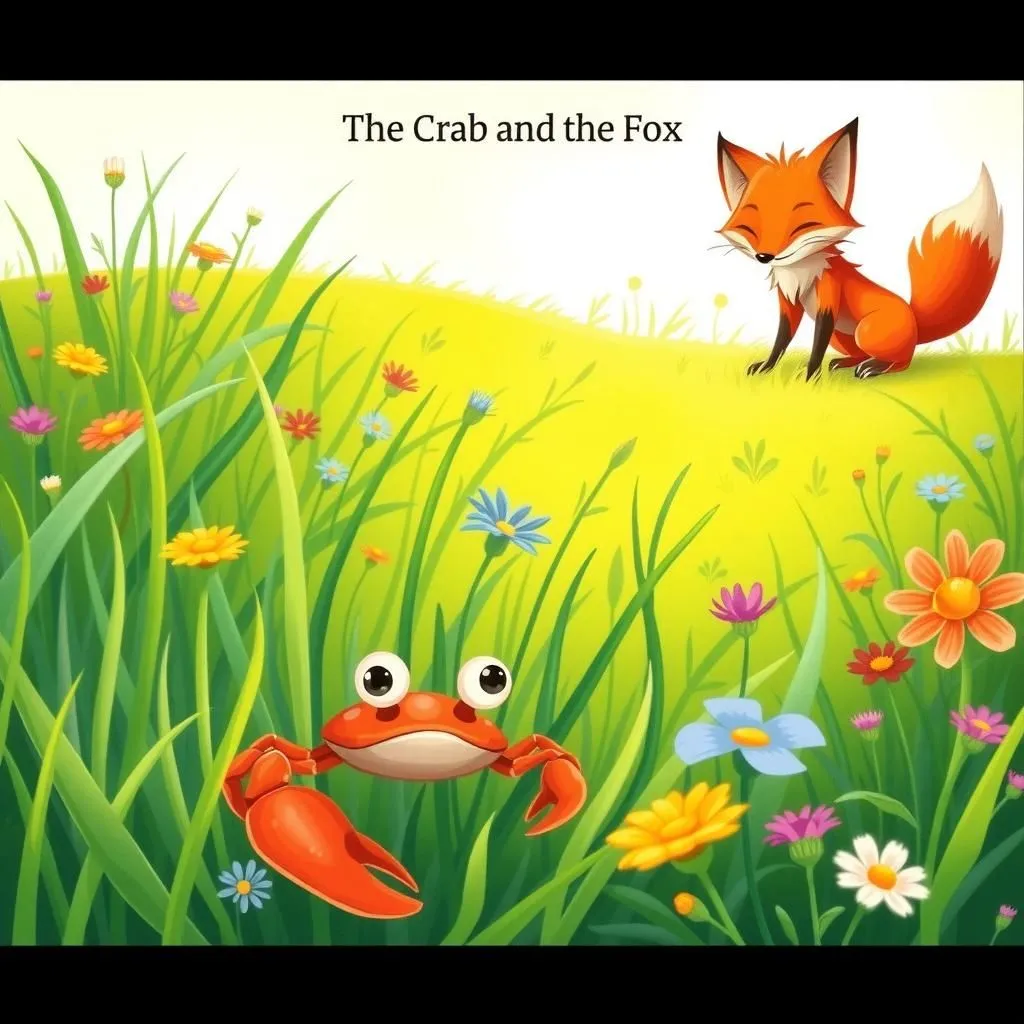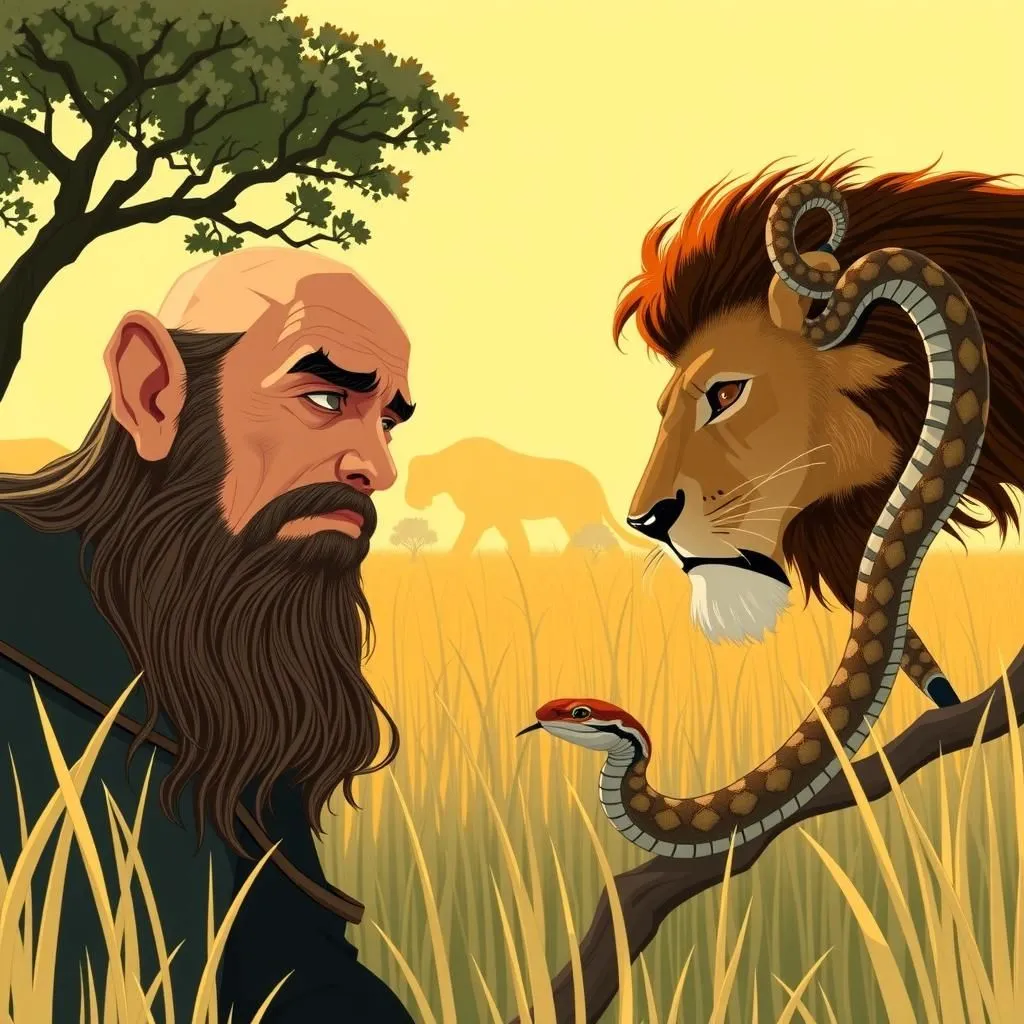
The Wolf and the Sheep
In this unique moral story, a wounded Wolf deceitfully asks a passing Sheep to fetch him water, promising meat in return. The Sheep, recognizing the Wolf's true intentions, wisely refuses, illustrating the importance of discernment in the face of temptation. This culturally significant tale serves as an inspirational story with a moral, reminding us that hypocritical speeches are easily seen through.


